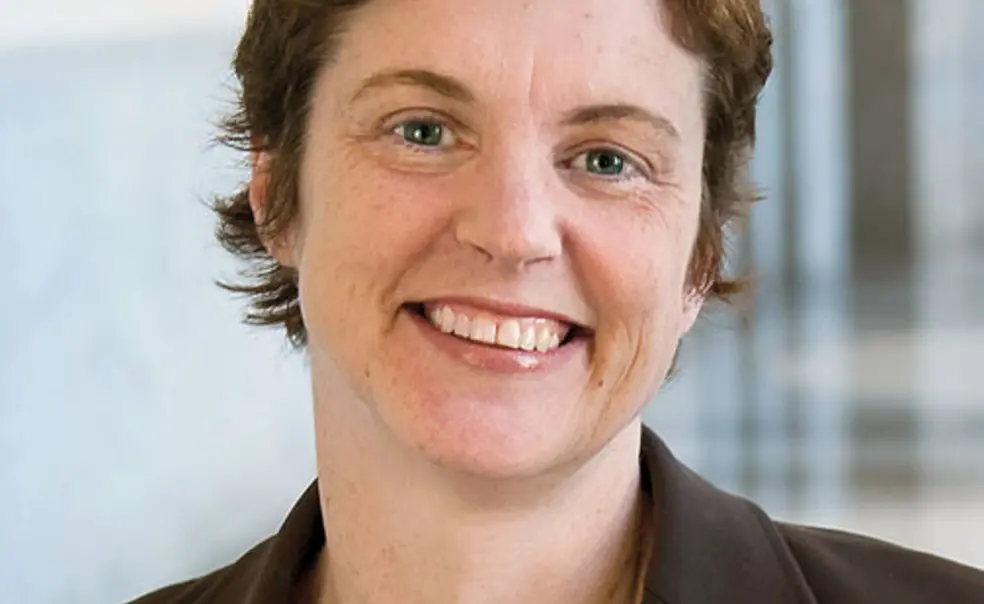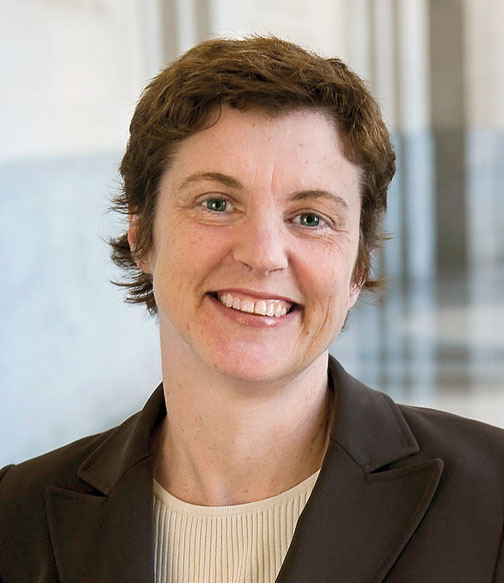Sweeping changes in Princeton’s fellowship advising program are designed to help students compete more effectively for prestigious programs like the Rhodes and Marshall scholarships, University officials say.
The University announced April 9 that Deirdre Moloney will fill the new position of director of fellowship advising as of July 1. Moloney is the director of postgraduate fellowship advising at George Mason University in Fairfax, Va.
She succeeds Frank Ordiway ’81 *90, who as associate dean of the college has coordinated postgraduate fellowship advising. Ordiway’s position is being eliminated as of June 30, and fellowship advising is being moved to the University’s Office of International Programs, headed by Senior Associate Dean of the College Nancy Kanach.
Nancy Malkiel, dean of the college, said the changes will “significantly increase” the advising support for undergraduates. Kanach previously coordinated fellowship advising at Princeton, Malkiel noted, and advising is a natural fit in the Office of International Programs because many of the major fellowships are offered by international programs.
Key faculty advisers for the Rhodes, Marshall, and Gates scholarships also are changing. Classics professors Joshua Katz and Constanze Guthenke will be succeeded by two members of the faculty who are “deeply versed in the British university system,” Malkiel said: Alan J. Ryan, lecturer with the rank of professor in politics, served as warden (head) of New College, Oxford, from 1996 to 2009 after eight years as a politics professor at Princeton, while Melissa Lane was hired as a politics professor last year after 15 years as a history faculty member at Cambridge.
The decision to replace Ordiway became known in mid-December, and 34 faculty members signed a letter to The Daily Princetonian expressing their “deep disappointment” at his pending departure. Uncertainty about the University’s plans sparked a campus debate over the effectiveness of Princeton’s support for students who seek postgraduate fellowships.
Fueling the debate is the University’s performance in the Marshall and Rhodes programs over the past decade. During that time Princeton has had 29 winners, while Harvard has had 52, Stanford 39, Yale 38, and MIT 24. Princeton “has not performed as well as we would have liked,” said Robert K. Durkee ’69, vice president and secretary.
Malkiel said she believes that Princeton “should be competitive over the long term with peer institutions for top scholarships such as the Rhodes, Marshall, and Gates,” and said the planned changes should make a difference.
A common suggestion from former Rhodes applicants was to reach out to students at an earlier point in their college years. Malkiel said the fellowship office plans to work closely with the residential college deans and directors of studies to identify and cultivate potential applicants at an earlier stage.
In the last five years all of Princeton’s Rhodes scholars have been men, as have five of the nine Marshall scholars. Malkiel said she would prefer that fellowship applicants “reflect the makeup of the student body,” and Moloney said she is “very much committed to diversity in representation.”
History professor Anthony Grafton cited another factor that could be difficult to address: that Princeton doesn’t foster the kind of “continual, lively, and more or less informed debate in dining halls and living rooms, corridors and elevators” that takes place at its peer institutions. That has an impact on how skillfully applicants conduct their interviews for competitive fellowships, he said in a column in the Prince.
Moloney said she hopes to develop a network of alumni who have had fellowship experience to supplement the key role played by faculty in advising and encouraging students.
She also stressed the importance of international experience through study abroad, internships, and research in other countries. Princeton’s bridge-year program should be valuable in “developing leadership skills and a global perspective,” she said.













1 Response
John Logan ’66
10 Years AgoCompeting for a Rhodes
As the former Princeton Fulbright program adviser, I have a question: Is it possible that our students’ success in the competition for Rhodes scholarships in comparison with that of applicants from Yale (Notebook, May 12) is simply a fact of numbers? By which I don’t mean averages, but number of seniors. Yale has about 10 percent more undergraduate students than Princeton, as it has for a long time. When the Wythes Report recommendations are fully implemented, the undergraduate population of Princeton will approximate that of Yale now; but of course Yale is also planning to increase the size of its College by adding two new colleges. Presumably a larger number of Princeton seniors will yield a larger number of candidates — and eventually of successful candidates — for the Rhodes.
Our Rhodes record, seen in this light, doesn’t seem anything to be apologetic about, and in any case Frank Ordiway ’81 *90 and his staff deserve great credit for all the work they have done over the years to advise Princeton applicants for the Rhodes scholarship and for other prestigious fellowships.